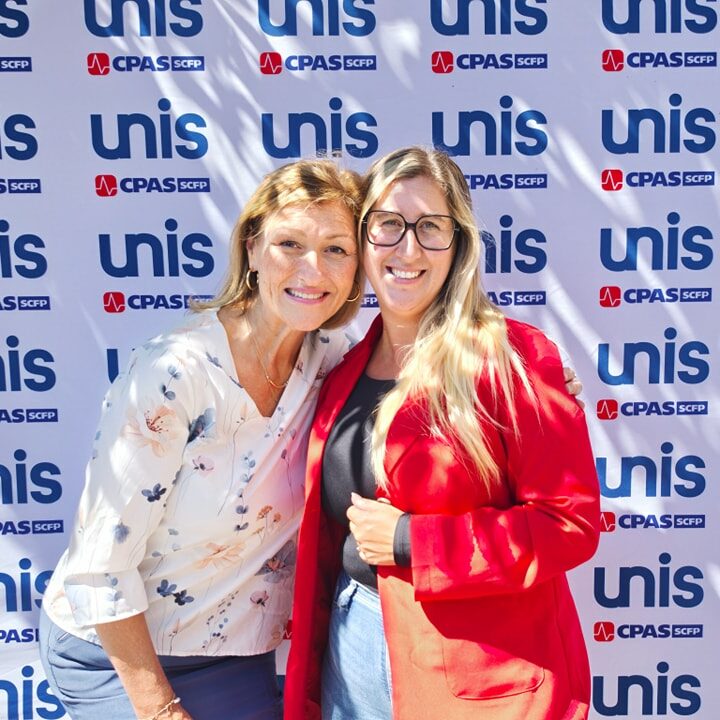
PH- What prompted you to get involved in union work?
FD- My involvement in union work goes back to the 2015 strike. I wanted to be actively involved in the battles and fight for better working conditions. There’s also a personal story behind this: my grandfather died from an occupational illness. That affected me and made me understand how critical workplace safety is.
PH- Do you think women are well represented in the decision-making bodies of unions?
FD- Not quite, although that’s changing. We see more women in union leadership positions, but there’s still some way to go to achieve full equality.
PH- Are there barriers preventing women from accessing leadership positions in the unions?
FD- Yes, and often, women are the ones who put up the barriers. We’ve grown up with the idea that a woman must be more present at home, that she has to juggle everything. We have to debunk that idea and encourage women to forge ahead and to take their place among the unions’ decision-makers.
PH- Have you noted differences in the way women and men exercise their union leadership styles?
FD- Yes. Generally, women tend to be calmer, which is really helpful for communications with members and the team.
PH- What are the main challenges facing women union activists today?
FD- There’s still the old perception that union leaders are men. It takes a lot of effort to break through that. There’s also prejudice about our ability to lead and make decisions. Women must be aware of these obstacles and move forward together.
PH- In your opinion, do unions provide enough consideration to the issues that specifically affect women?
FD- Increasingly so, yes. When a strike happens nowadays, the issue isn’t just wages, it’s also working conditions and work-family balance. We’re hearing more about these issues these days.
PH- What initiatives or policies should be implemented to encourage more women to get involved in the unions?
FD- We need training and support, and, above all, open-mindedness. Beyond that, women need to take chances. Make themselves heard, get involved, go forward with confidence.
PH- Can you tell us about some effective methods that have promoted gender equality in your union?
FD- Yes! Training geared toward women in the union workspace is really useful. It provides tools, helps create a support network and brings us together with other women who are going through the same things. Recently, the FTQ organized a feminist school event that provided many women members of SCFP-QC with the opportunity to develop projects in their own union environments. These projects are in development or have already been implemented in organizations such as Local 301 and in the social affairs sector.
PH- What advice would you give to a woman who is hesitant about getting involved in a union?
FD- If you feel like doing it, go for it. Don’t wait til someone invites you to the table. Take your seat, make your voice heard. If you believe in your values, you’ll find your place and you’ll make a difference.
PH- How do you see the evolution of women’s role in the unions over the coming years?
FD- I’m very hopeful. We already see more women getting involved and filling important positions, whether it’s at the CPAS or SCFP-Québec. The trend is happening, and it will continue.
PH- Do you think that the presence of women activists is contributing to a change in union priorities and demands?
FD- Yes, no doubt about it. Today, with women at the head of organizations, these issues are being forcefully promoted, along with the message about women’s rights.
PH- What improvements are still needed to achieve full gender equality in unions?
FD- A change in culture. All the organizations must encourage women to get involved and provide them with solid support. Often, women hesitate to voice their opinion for fear of not being good enough. If we show women that we’re here for them, they’ll start taking part.
PH- Do you think that women union members receive as much media attention as their male counterparts?
FD- That all depends, but sometimes they get judged when they speak too forcefully, because they’re often perceived as too emotional. Whereas a man in the same situation is seen as a strong leader.
PH- Do you think that women’s demands are sometimes reduced to “women’s issues” instead of being considered major union issues?
FD- Yes, but things are changing. We saw this with the public sector strike; there were broad discussions about women’s equality and working conditions.
PH- Does your organization support you in better managing media relations and ensuring you’re being heard?
FD- Yes, I have a lot of support from my organization, but I absolutely have to take the initiative to seek out the media and use social networks as a communication tool.
PH- Do you think that social networks have changed the game for women by allowing them to bypass traditional media to get their message across?
FD- Absolutely. Social media provides a direct, unfiltered platform where we can talk about our struggles and mobilize people. It’s a powerful tool for women who are union activists. But we must also continue to find new ways to convey our message.